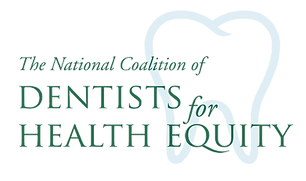This year marks the 10th consecutive legislative session the Washington State Dental Association blocked one of the most successful policy interventions for improving communities’ access to dental care: dental therapists.
Dental therapy is also the only dental policy originating from, and informed by, communities with some of the greatest need.
In 2010, as a longtime Seattle resident living a few blocks away from the Odessa Brown Children’s Clinic, I helped launch the Washington Dental Access Campaign. Back then, only two states had dental therapists, Alaska and Minnesota. However, the University of Washington, in partnership with the Alaska Native Tribal Health Consortium, was graduating the first U.S. dental therapists, so we thought it was a slam dunk.
I did not yet understand how much deeply rooted racism and special interest would play into blocking these providers.
By introducing dental therapists, Alaska Native tribal leaders challenged traditional options to obtain care. Instead of paying high incentives to entice dentists into communities, tribal leaders invested in training local community members to do the most common procedures.
Dental therapists then work under dentist supervision. The result? Professional wage jobs, a representative workforce, greater community trust and improved population health. Yet, the dental association insists dental therapy is not good enough for nonnative communities.
I disagree. I met the Alaska Native and Washington tribal leaders working on behalf of their communities. I trust them. I trust them more than the dental association. It’s time Washington’s legislators do as well.
Before this work, I did not know dental disease was a silent epidemic that is all around us. I will always remember meeting the Yelm area mom who propped up her 7-year-old daughter on a couch for several nights because her toothache was too excruciating for her to lie down. Day after day, this mother searched for a dentist to see her daughter.
I remember Aaron Kathman, an organizer and colleague. Aaron also suffered excruciating pain from an abscessed tooth and spoke passionately about his struggles to find a dentist to see him. Aaron fought for dental therapists to improve access and for new jobs in his community. Sadly, Aaron passed away at age 39 from heart complications.
I vividly remember talking to a mother from Lacey, whose adult son, Steve McNall, died when the infection in his mouth spread to his blood. Laid off during a recession, he sold his car and home, moving into an apartment. Steve delayed care for a sore tooth for two weeks before finally agreeing to go to the ER. He slept as he waited for a ride. Steve never woke up again.
As a new mom, the anguish caused by a child in pain is not lost on me. Dental therapists can help. A 2017 UW study found adding dental therapists to the team improved outcomes, reducing extractions and increasing preventive care at a population level. Put plainly by dentist and award-winning UW researcher Dr. Donald Chi, “More people are keeping their natural-born teeth.”
I am still surprised how little the average dentist knows about dental therapists. Unfortunately, that doesn’t stop them from blocking good policy.
But that’s how privilege works. Dentists don’t have to believe us when we say there is a problem. They don’t have to read the overwhelming evidence supporting dental therapists. Instead, they reach deep in their pockets, donating large sums of money to maintain the status quo and block good public policy.
It took just 10 years to bend the arc of dental disease in Alaska’s communities — exactly how long the dental association has blocked dental therapists in Washington.
This year, after WSDA blocked it yet again, supporters helped get a dental therapy task force into the budget. I hope this process cuts through the fog created by the dental lobby.
Dental therapists are now authorized in 12 states, including tribal clinics in Washington. It’s time for dental therapists to serve communities statewide. It’s time Washington’s communities get the win.
Original Article from The Seattle Times

Comentários